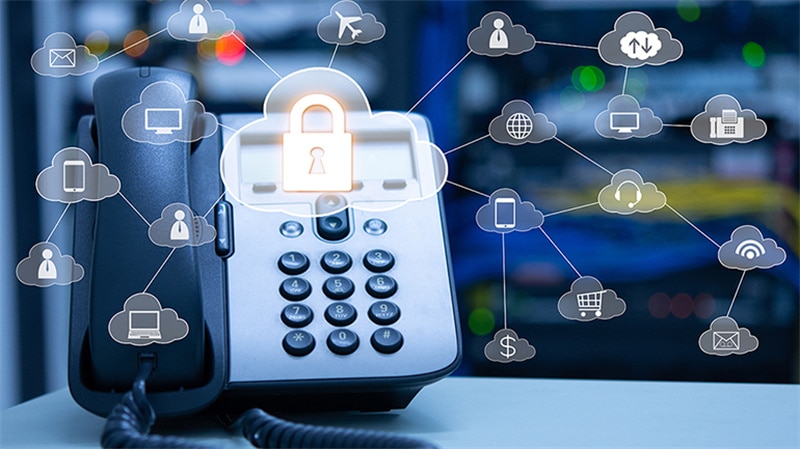
Nowadays, Business Phone Systems are being adopted by businesses who are looking for more cost-effective solutions to their call center challenges.
Traditional circuits are expensive and very few medium and small business owners can justify the expense of keeping it around if they're not making many calls with it on a regular basis. A business phone system once implemented correctly will provide you with every feature and capability that your business needs to communicate properly with customers and suppliers.
It's hard to make a mistake when choosing a VoIP provider since there are so many options available to handle all of your requirements.
Here are crucial factors that you should consider when choosing a business phone system:
Number of Employees/Workers

If your workforce is small enough that everyone can sit at a desk and communicate by yelling across an open room or through an intercom, you might not need a Business phone system at all.
But if there are more than ten employees/workers who will have to use multiple work areas or be out on sales calls some of the time, a wired telephone system will probably be more reliable and provide better service than a cell phone or VoIP alternative.
Number of Phone Lines

On the surface, there isn't a direct relationship between an employee/worker and the required phone line(s). But if you need to connect your system to the Public Switched Telephone Network (PSTN) so employees/workers can make and receive calls on their own phones or extensions, you'll need sufficient lines to support those connections.
One way around this is to use a VoIP service that uses the internet as its network. That way, additional lines aren't needed because each computer becomes a virtual telephone line. However, collisions may begin as more organizations shift from analog voice services to digital voice services using packets instead of circuits.
Compatibility with other companies' systems will also be important if you work with outside vendors and suppliers who need to call into your office.
Call Coverage

Firms might also need to consider the amount of time their employees/workers spend on calls when purchasing Business phone system services. For instance, if your workers stay logged into their desk phones for long periods at a time, you'll want to make sure that they don't run out of battery power halfway through important conversations with clients.
That's why it's usually best to choose cordless models-which can be used anywhere within a designated radius rather than desk or “hardwired” models that must remain near a power source.
By keeping these and other variables in mind, business owners and managers can find the right type of VoIP deals available from providers in their areas.
Reliability

In some cases, a small business may opt for VoIP services because it's cheaper than traditional telephone systems even though the cost of losing a customer or two would offset those savings many times over.
But if reliability is your top priority, you might want to consider allocating more funds to ensure a Business phone system is in place even if it means going without other types of technology as a result, such as computers or cell phones.
In that case, you'll still incur additional costs related to using alternative communication technologies as substitutes, but the increased reliability could increase employee/worker productivity and reduce disruptions in your service. The cost of downtime or interruptions can be much higher than you might think.
Multiple Locations

If you have multiple locations, the phone system must be compatible with all of them to ensure consistent service quality-and features like voice mail and call forwarding should reach every individual extension in every location. That's why it might be best to use a VoIP Business phone system that features remote access; that way you can manage all of your company's needs no matter its location.
This is especially true if you outsource certain business functions or hire employees/workers who work remotely. You won't want any disruptions due to incompatible technology across your entire organization.
Cost

The cost of a Business phone system varies based on several factors, including the number of people who will need phones, the number of locations, and the type of service required for each user.
For example, a company with only 10 employees typically won't pay as much for Business phone system services as one with 400 workers-although there are exceptions depending on individual circumstances.
To get the most accurate estimate possible, contact an independent telecom consultant who is familiar with all types of Business phone systems so you can find out what would work best in your specific situation.
Employee Satisfaction

Another factor to consider is how employees/workers feel about their Business phone systems. If they're unhappy with features such as call forwarding and voicemail, they might be tempted to use personal devices for business-which defeats the purpose of having a company-issued device in the first place.
To avoid that option altogether, find out what your workers/employees want most from their phones and include those needs when shopping for business services. Keep in mind that some businesses over cordless models because desk phones can more easily accommodate multiple lines and voicemail services.
In some cases, businesses might opt for a VoIP Business phone system that doesn't require the purchase of new phones. That allows them to add features such as voicemail and call forwarding to exist desk phones in their organizations without the cost-and inventory-related complications of having an entirely new device on hand.
If you do go this route, make sure you test out all the options before deciding what would work best in your business. Look at how long messages can be left on a mailbox before a call gets disconnected, and find out whether incoming calls get updated with information from outgoing messages. Also, keep track of the time it takes voicemail messages to get delivered so that employees/workers know when to expect them.
The more flexible your telephone service is the better you'll be able to accommodate both present and future needs. You want a business phone system that will offer a number of flexible options for your services as well as flexible billing options if necessary.
That's why it pays to speak to a professional and determine whether any of these advanced options would benefit your organization before buying a Business phone system service.










